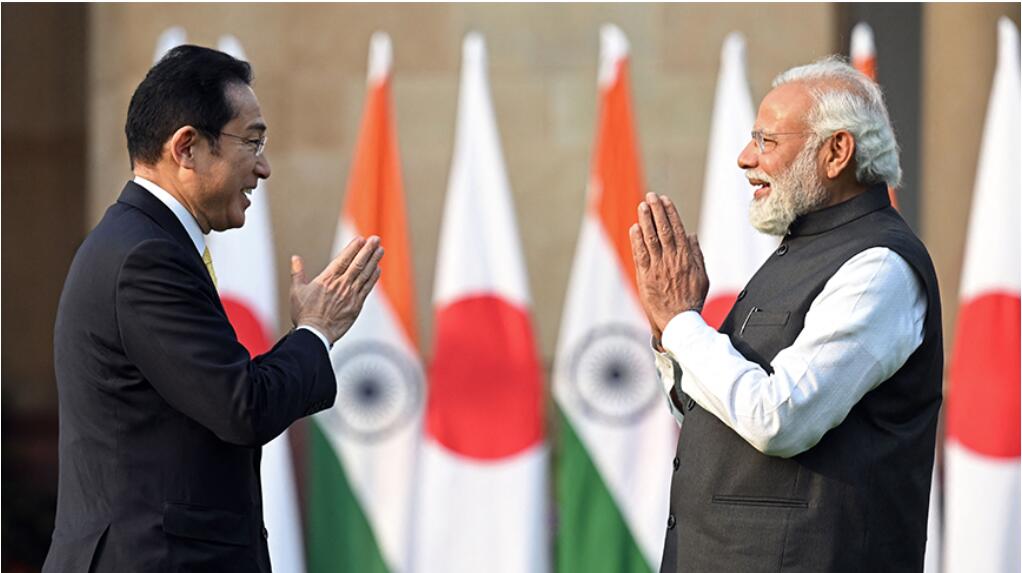The recent India-Japan “2+2” Ministerial Dialogue held in New Delhi marks a noteworthy advance in defense cooperation between the two nations, signaling a strategic alignment that could have significant ramifications for the Indo-Pacific region. This elevated partnership between India and Japan reflects a mutual commitment to enhancing regional stability and countering rising geopolitical tensions, particularly in the face of China’s expanding influence.
The dialogue, which saw India’s Defense Minister Rajnath Singh and External Affairs Minister S. Jaishankar meet with Japan’s Defense Minister Minoru Kihara and Foreign Minister Yoshimasa Hayashi, focused on several key areas: increasing joint military exercises, advancing defense equipment transfers, and bolstering space collaboration. One of the notable agreements was the expansion of military drills, building on the existing frameworks of exercises such as “Dharma Guardian” and “Malabar.”
The “Malabar” exercises, which also involve the United States and Australia, have been a cornerstone of trilateral naval cooperation in the Indo-Pacific. They demonstrate a concerted effort among these nations to enhance maritime security and operational interoperability. With Japan now poised to deepen its engagement in these drills, the exercises will become even more robust, showcasing a united front against potential threats to regional stability.
In addition to “Malabar,” the “Dharma Guardian” exercises have fostered stronger ground forces cooperation between India and Japan. These exercises have been instrumental in honing tactical skills and interoperability between the two nations’ armies, which is crucial in responding to emerging security challenges.
The planned acceleration of defense technology transfers, including the potential export of Japan’s US-2 amphibious aircraft to India, further exemplifies the strengthening of strategic ties. Such advancements in military capabilities could enhance India’s ability to project power and secure its maritime interests, countering any aggressive moves by China in the region.
A significant aspect of the dialogue was the emphasis on space collaboration. As India and Japan explore joint efforts in satellite-based navigation and space situational awareness, their partnership will contribute to a more comprehensive approach to security. This space collaboration reflects both nations’ ambitions to secure their interests beyond terrestrial borders, aligning with broader strategic objectives in the Indo-Pacific.
The deepening India-Japan defense ties come as China intensifies its efforts to assert dominance in the Indo-Pacific region. China’s expansive maritime claims and military activities have raised concerns among regional and global stakeholders. By enhancing defense cooperation with Japan, India is positioning itself as a key player in a network of alliances aimed at preserving a free, open, and inclusive Indo-Pacific. This strategic alignment sends a clear signal to China that any attempts to unilaterally alter the regional balance of power will be met with a coordinated response from major democratic nations.
The growing defense partnership between India and Japan not only enhances their bilateral relations but also plays a critical role in countering China’s assertive posture in the Indo-Pacific. The expanded military exercises, technology transfers, and space collaboration are strategic moves designed to ensure stability and security in a region increasingly defined by competition and complexity.
